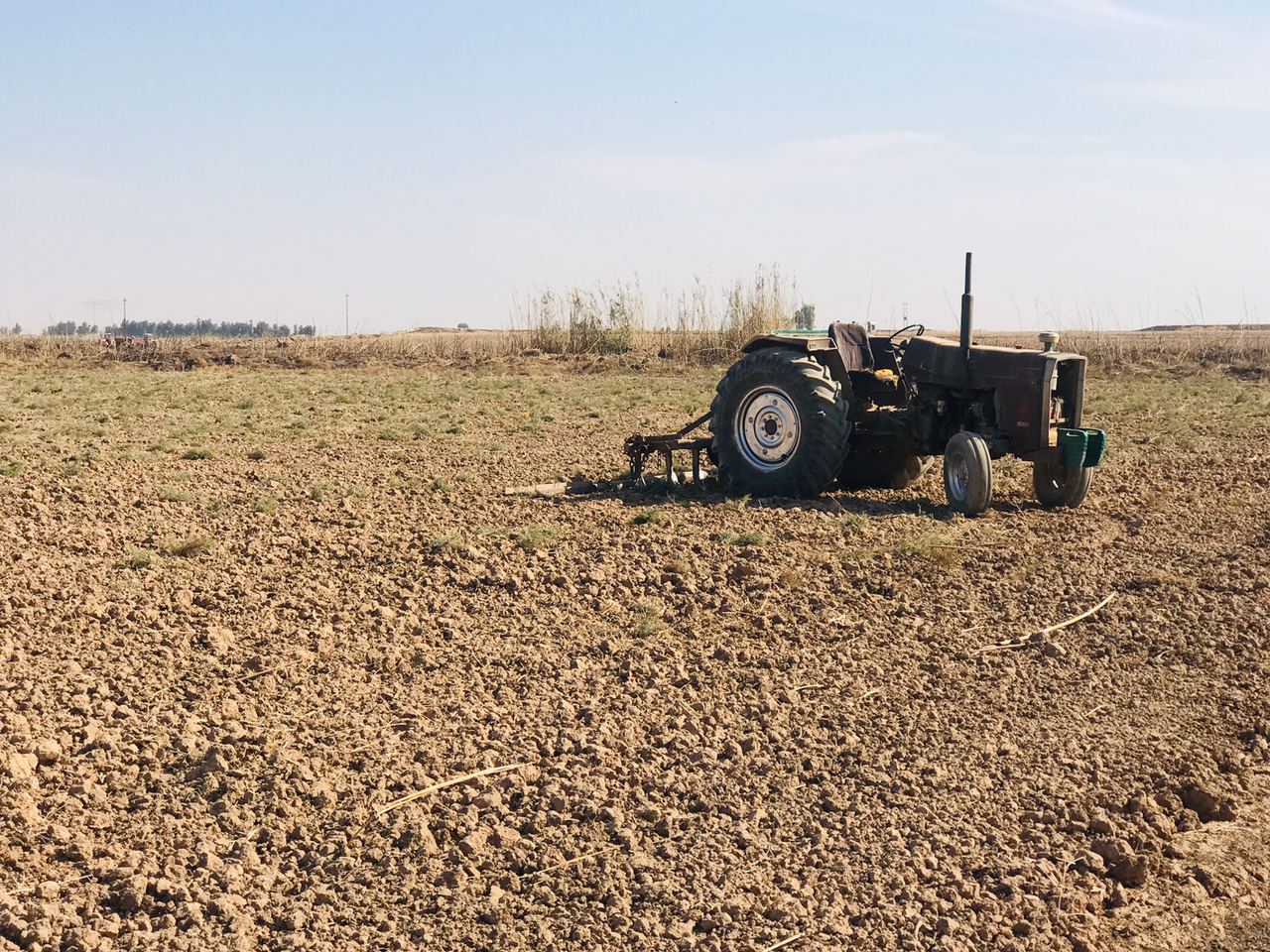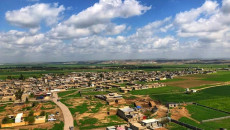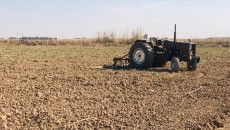A group of villagers in Haftaghaz area in Kirkuk’s Daquq district staged a protest today against their lands being ploughed by “Arab settlers.” An agreement was recently made between Arab and Kurdish farmers, under the auspices of the Iraqi Army and the Federal Police, to not work the fields in that region this year.
Although the issue is not new, it has once again raised fears of possible conflict. An MP from Kirkuk says that issue requires a permanent resolution, not a temporary one.
The protest, which was staged today (23 December) at Fareeq village, south of Daquq district, came after Arab “settlers” began ploughing several plots of land which the Kurdish farmers claim ownership to.
Abdulqadir Muhammad, a Kurdish farmer from the Fareeq village, told KirkukNow: “I have an agricultural contract. We have inherited these lands from our ancestors, but we are being prevented by the security forces and the district’s officials from entering our lands for three years now. Yet, we see that Arab settlers on our lands and cultivating them.”
In November, an agreement was signed between the two sides that 18,5 square kilometres (1,850 hectare) of agricultural lands not to be cultivated by either side for the time being.
The origin of the landownership disputes goes back to when agricultural lands belonging to Kurds and Turkmens in Kirkuk and some other disputed areas in other provinces were distributed among Arabs from central and southern provinces of Iraq under the rule of the Ba’th regime. Most of the Arabs who were settled there left after the fall of the Saddam regime in 2003.
The land confiscation and their redistribution to Arab farmers was part of the ‘Arabization process’ and was directly ordered by the regime’s ‘Revolutionary Command Council’, which had legal powers.
Dylan Ghafour, an member of the Iraqi parliament from Kirkuk, told KirkukNow: “These land issues that resurface on a daily basis have legal and political aspects; the political [aspect] is that after [KRG’s independence] referendum and later the [events] of 16 October 2017 when the Iraqi forces came back to Kirkuk and other disputed areas, Kurds’ administrative and security authority was weakened, and the current Kirkuk administration was writing to return the Arab settlers who left since 2003.”
“But in legal terms, the issue is that decrees from the Ba’th party’s Revolutionary Command Council are still in effect and haven’t been annulled so that those lands could be returned to their original owners.”
in legal terms, the issue is that decrees from the Ba’th party’s Revolutionary Command Council are still in effect
“The issue is indeed a legal one, but it is also tied to politics. For example, the decrees by the Revolutionary Command Council were brought to parliament during the previous cabinets, but [their annulment] were not passed, because some sides have interests in not annulling them.”
Ghafour admits that all the efforts by the members of parliament to resolve the issue are only temporary and last only a few days.
“The radical solution is that the Iraqi Parliament solve the issue of the agricultural lands judicially.”
A parliamentary committee has been formed for resolving the issue, which will visit Kirkuk province next week to write a report and send it to the leaderships of the three branches of the Federal Government.







